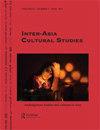Fluid motherhood: gender, Chinese religions, and kinship maneuvers in the Buddhist women’s Southern Sea diaspora (1880–1960)
IF 0.3
4区 社会学
Q4 ANTHROPOLOGY
引用次数: 0
Abstract
ABSTRACT Chinese kinship, the basis and vital force of Chinese societies, is defined by patrilineal descent; thus, it has an agnatic character. The Chinese kinship system was brought to Southeast Asia by Chinese communities in their various diasporic trajectories. Its patriarchal norms have been maintained through various social institutions, under which women were generally peripheral. This article utilizes new materials garnered from fieldwork on women’s temples in Singapore to demonstrate how unmarried, widowed, and unattached Chinese women organized themselves and their networks through matricentric religious establishments. Further, they reconfigured, rebuilt, and reorganized their kinships based on religious lineages, dialect groups, and mutual interests rather than blood. Through providing empirical insights into the gendering and religionizing of Chinese kinships in Southeast Asia, this article seeks to address the persistent male bias in studies of Chinese kinship, arguing for the need to consider non-normative family units that center around women and female religious leadership. Many of the religious women concerned were associated with Buddhism in some way; therefore, this article suggests that Buddhist “families” on the ground do not necessarily comply with traditional Buddhist monastic orders. Rather, they have fluid dispositions and diversified natures. The ambivalence that characterized these local forms of Chinese Buddhism enabled women to navigate and negotiate their multiple socioreligious identities and create their own spiritual homes in male-centered Chinese diaspora communities in Southeast Asia.流动的母性:性别、中国宗教和散居在南海的佛教妇女的亲属关系(1880-1960)
摘要中国的亲属关系是中国社会的基础和重要力量,其定义是父系血统;因此,它具有一种抽象性。华人亲属制度是由华人社区在其不同的流散轨迹中带到东南亚的。其父权制规范通过各种社会制度得以维持,在这些制度下,妇女通常处于边缘地位。本文利用从新加坡妇女寺庙实地调查中获得的新材料,展示了未婚、寡居和未婚的中国妇女是如何通过以母体为中心的宗教机构组织自己和她们的网络的。此外,他们根据宗教血统、方言群体和共同利益而非血缘关系重新配置、重建和重组亲属关系。通过对东南亚华人亲属的性别化和宗教化提供实证见解,本文试图解决中国亲属关系研究中持续存在的男性偏见,认为有必要考虑以女性和女性宗教领袖为中心的非规范性家庭单元。许多有关宗教的妇女在某种程度上与佛教有联系;因此,本文认为佛教的“家”在地上不一定遵守传统的佛教寺院秩序。相反,它们具有流动性和多样化的性质。这些地方形式的中国佛教的矛盾心理使女性能够驾驭和协商她们的多重社会宗教身份,并在东南亚以男性为中心的华人散居社区中建立自己的精神家园。
本文章由计算机程序翻译,如有差异,请以英文原文为准。
求助全文
约1分钟内获得全文
求助全文
来源期刊

Inter-Asia Cultural Studies
Multiple-
CiteScore
0.90
自引率
20.00%
发文量
22
期刊介绍:
The cultural question is among the most important yet difficult subjects facing inter-Asia today. Throughout the 20th century, worldwide competition over capital, colonial history, and the Cold War has jeopardized interactions among cultures. Globalization of technology, regionalization of economy and the end of the Cold War have opened up a unique opportunity for cultural exchanges to take place. In response to global cultural changes, cultural studies has emerged internationally as an energetic field of scholarship. Inter-Asia Cultural Studies gives a long overdue voice, throughout the global intellectual community, to those concerned with inter-Asia processes.
 求助内容:
求助内容: 应助结果提醒方式:
应助结果提醒方式:


